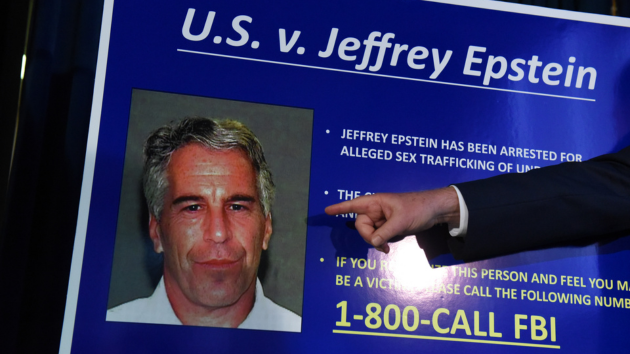Five takeaways as Supreme Court questions sweeping challenge to abortion pill access
Written by ABC Audio ALL RIGHTS RESERVED on March 26, 2024

(WASHINGTON) — The U.S. Supreme Court on Tuesday heard a challenge to the Food and Drug Administration’s regulation of mifepristone, a widely used drug used in medication abortions.
In what was the most significant reproductive rights case brought before the high court since its conservative majority overruled Roe v. Wade in 2022, most of the justices, across ideological lines, appeared skeptical of restricting access to the abortion pill nationwide and repeatedly questioned whether the group of anti-abortion doctors who brought the case had standing to sue and seek such a sweeping remedy.
A decision in the case is expected by the end of June.
Here are five key takeaways from the roughly two hours of arguments.
Standing at center of debate: ‘You need a person’
The arguments largely revolved around whether the anti-abortion plaintiffs, the Alliance for Hippocratic Medicine, had standing to bring this case — specifically whether their clients had suffered the kind of injury from the FDA’s regulation needed to meet the legal requirement to challenge it.
“The FDA approved mifepristone based on the agency’s scientific judgment that the drug is safe and effective,” Solicitor General Elizabeth Prelogar, representing the federal government, said in her opening statement.
“Americans have used mifepristone to safely end their pregnancies. Respondents may not agree with that choice, but that doesn’t give them … standing or a legal basis to upend the regulatory scheme,” she continued.
While mifepristone was first approved in 2000, Tuesday’s hearing more specifically examined the claim that the FDA improperly relaxed regulations around using the pill in 2016 and 2021.
Prelogar argued that the doctors cited by the Alliance for Hippocratic Medicine as having suffered conscience harm — because they oppose abortion but contend they are forced to be connected to treating abortion patients through the widespread use of mifepristone — don’t “come within 100 miles” of standing as established by the Supreme Court precedent.
Justice Elena Kagan pressed the counsel for the group on this point directly, asking her: “You need a person … So who’s your person?”
Senior counsel Erin Hawley, defending the doctors, argued they did have proper standing because the FDA’s “outsourcing of abortion drug harm to respondent doctors forces them to choose between helping a woman with a life-threatening condition and violating their conscience.”
Anti-abortion doctors voice conscience objections
Hawley argued not having a nationwide injunction of mifepristone may require the anti-abortion doctors to treat people experiencing abortion complications and “take an unborn life.”
Hawley also invoked the specter of an “intolerable” choice created by the widespread use of mifepristone if an anti-abortion doctor must consider treating abortion patients in an emergency situation or not.
She said plaintiffs have treated people experiencing abortion complications “dozens of times” and even said treatment may require “scraping out a uterus,” She did not provide specific numbers.
However, Justice Amy Coney Barrett noted that two of the doctors cited by Hawley do not appear to have ever participated themselves in an abortion to terminate an embryo or a fetus. Barrett asked Hawley: “Do you want to address that?”
Hawley answered that precedent showed a doctor could claim harm of conscience and the FDA’s action with regards to mifepristone created “substantial risk” that they’d have to ultimately confront a situation requiring them to, in her words, end the life of an unborn baby.
Prelogar said the federal government does believe that, with some exceptions, individual doctors still have broad “conscience protections” if they oppose abortion and decline to provide access to mifepristone and that federal laws already protect doctors in this situation.
Justices question if a sweeping ban is necessary
As Hawley voiced the objections of the anti-abortion plaintiffs, some justices pressed whether a sweeping ban was truly necessary.
if a nationwide reversal of the FDA’s approval of mifepristone is needed because the court could simply rule that doctors do not need to prescribe the pill if they have conscience objections.
“Do we have to entertain your argument that no one in the world can have this drug in order to protect your client?” Justice Ketanji Brown Jackson asked Hawley.
“It makes sense for individual doctors to seek a [conscience] exemption but they already have that,” Jackson said at one point in the arguments. “What they are asking for here is — in order to prevent them from ever having to do these kinds of procedures — that everyone else should be prevented from getting access to that medication. How is that not overbroad?”
Several other justices, including conservative-leaning Neil Gorsuch, also appeared leery of reinstating sweeping limits on the drug nationwide when only a handful of doctors were alleging harm.
“This case seems like a prime example of turning what could be a small lawsuit into a nationwide legislative assembly on an FDA rule or any other federal government action,” Gorsuch said.
Hawley argued that given the “emergency nature” that could require doctors to treat women suffering abortion complications that result in terminating an embryo or a fetus, it is “impracticable” to have the doctors rely solely on their personal conscience objections without broader restrictions.
Gorsuch pressed Hawley on what he called a “rash of universal injunctions” the court has had to review, which appeared to reference the ruling from Judge Matthew Kacsmaryk of the Northern District of Texas, who outright suspended the FDA’s original approval of mifepristone potentially blocking access to the abortion medication across the country.
Kacsmaryk’s decision led to the appellate fight which came before the high court this week.
Questions over potential ‘harms’ and FDA regulation
Prelogar and Jessica Ellsworth, who represented mifepristone manufacturer Danco Labs, both advocated for the drug’s safety and defended the FDA’s judgment — warning of broader consequences for all drug approvals if the agency’s expertise were, in their view, invalidated or undercut by the courts.
Justice Samuel Alito noted to Prelogar that the plaintiffs argued in court filings that studies have shown after the 2021 change from the FDA, which allowed mifepristone to be mailed, that there was an increase in emergency room visits.
Prelogar said the agency acknowledged that while some studies have shown the availability of abortion pills by mail led to more ER visits, this did not equate to “more serious adverse effects.”
“Many might go because they are experiencing heavy bleeding which mimics a miscarriage and they need to know whether or not they are having a complication,” she said.
Alito also asked Jessica Ellsworth, representing the drug manufacturer, if she believed FDA was “infallible” — which she rejected.
Alito further questioned whether the FDA should have continued requiring prescribers to report non-fatal complications of mifepristone.
Justice Jackson, following up on whether Ellsworth believed the FDA was “infallible,” pondered the alternative of having courts interpreting medical studies without specialized scientific knowledge.
“I think we have significant concerns about that,” Ellsworth said, noting that Judge Kacsmaryk in Texas relied on, in part, two studies that were retracted earlier this year.
What about the Comstock Act?
Justices Clarence Thomas and Alito repeatedly asked counsels about the relevance of the Comstock Act, a 151-year-old law under which it’s illegal to use carriers like the United States Postal Service to mail “obscene” materials such as drugs that induce abortions.
Prelogar told Alito she did not believe the law fell under the FDA’s “lane” of responsibilities when he asked whether the agency should consider Comstock’s provisions when regulating mifepristone.
Thomas questioned Ellsworth on why the legislation doesn’t prohibit her company from mailing and advertising the pill.
Ellsworth responded that the Comstock Act has not been enforced for “over 100 years” and that she didn’t believe this case presented the court an opportunity to “opine” on its reach. She also noted the 5th U.S. Circuit Court of Appeals ruling on mifepristone did not consider the Comstock Act argument made by the anti-abortion group.
“The FDA routinely approves drugs whose manufacturer and distribution is restricted by other laws, like the Controlled Substances Act, environmental laws, customs laws and so on,” she said. “I think this court should think hard about the mischief it would invite if it allowed agencies to start taking action based on statutory responsibilities that Congress has assigned to other agencies.”
ABC News’ Devin Dwyer and Lalee Ibssa contributed to this report.
Copyright © 2024, ABC Audio. All rights reserved.

 KVSP
KVSP 




